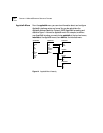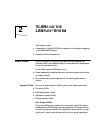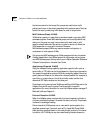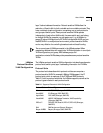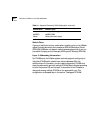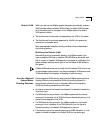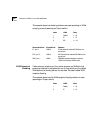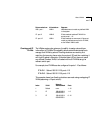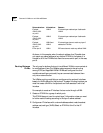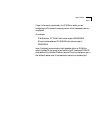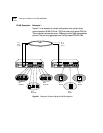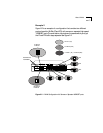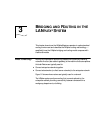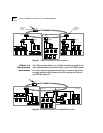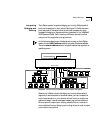
2-8 CHAPTER 2: VLANS ON THE LANPLEX® SYSTEM
As shown in this example, when the subnet address of an IP packet does
not match any subnet address of any defined IP VLAN in the system, it is
flooded to all of the IP VLANs that share the source switch port, in this case,
port 6.
Routing Between
VLANs
The only way for stations that are in two different VLANs to communicate is
to route between them. The LANplex system supports internal routing
among IP, IPX, and AppleTalk VLANs. If VLANs are configured for other
routable network layer protocols, they can communicate between them
only via an external router.
The LANplex routing model lets you configure routing protocol interfaces
based on a VLAN defined for that protocol. To assign a routing interface, you
must first create a VLAN for that protocol and then associate it with that
interface.
For example, to create an IP interface that can route through a VLAN:
1 Create an IP VLAN for a group of switch ports.
This IP VLAN does not need to contain layer 3 information unless you want
to further restrict flooding according to the layer 3 subnet address.
2 Configure an IP interface with a network address, subnet mask, broadcast
address, cost, and type (VLAN). Select an IP VLAN to “bind” to that IP
interface.
Data received on... Is flooded on... Because...
IP subnet
158.103.122.2
on port 6
VLAN 2 IP network layer matches layer 3 address for
VLAN 2.
IP subnet
158.103.123.2
on port 6
VLAN 3 IP network layer matches layer 3 address for
VLAN 3.
IP subnet
158.103.124.2
on port 6
VLAN 2 and
VLAN 3
IP network layer does not match any layer 3
address for IP VLANs.
IPX on port 6 VLAN 1 IPX frame does not match any defined VLAN.



